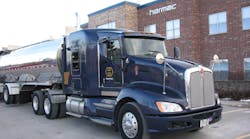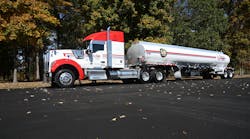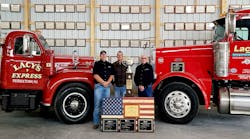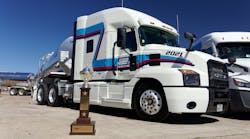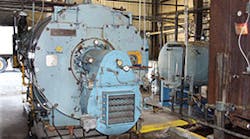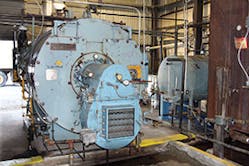IN 1982, Bob Young invested $2,000 on a pressure washer to clean the tank trailers he was using to haul corn syrup.
He established Lafayette Sani-Wash in Lafayette, Indiana, five years later, and now operates a foodgrade cleaning facility with equipment he largely designed and constructed himself.
In his presentation at the NTTC Tank Cleaning & Environmental Council Meeting, “Boiler Common Sense and Food Grade Wash Perspectives,” he displayed a number of explosion photos and said that boilers need a lot more attention than they usually get.
“I think the boiler should be sitting where everybody can see it,” he said. “If it starts leaking, everybody can see the leak. But if you hide the boiler in a closed room out of sight, you might not see when something goes wrong. The result could be catastrophe.
“I know of several places where tank washes put the boiler underneath the stairs where nobody can see it. It went into a dry-fire situation, and now we don’t have any steam, so we can’t clean. So the guy goes in and smacks the McDonnell & Miller valve and knocks the sledge out of it and water gets in there and you have an explosion.”
Young stressed the import“A couple of years ago, we had a carrier hauling steak sauce—10 loads a week to Wisconsin,” he said. “Five shipments were loaded in Pennsylvania and five were loaded somewhere in Texas.
“On the shipments loaded in Texas, as soon as the tank trailers were unloaded, they got washed and reloaded. The Pennsylvania operation wouldn’t reload the tank if the wash was over an hour old. So they hauled the tanks all way back to Pennsylvania dirty. That lasted about 30 days before the tanks started leaking.
“The tank trailers that hauled the same steak sauce product out of Texas are still in service. Of the others, one or two of them were brand-new tanks that had just been put into service. They were pitted so badly they had to be refurbished. Regardless of what it is you’re hauling, it’s important to get them get cleaned out immediately.”
He also took issue with the washing specs used by the Juice Products Association—one of them is to wash the tank twice with detergent, then do a rinse for 15 minutes in virgin water to the drain at 230 degrees F.
“I called this lady and said, ‘We have problems: We don’t have the same water you’ve got there down in Florida,’ ” he said. “She said, ‘What do you mean?’ I said, ‘Ours boils at 212.’ She said, ‘That’s not right.’ I said, ‘Well, you need to talk to some of your engineers.’
“But even if we could do it, it means putting a lot of hot water down the drain—1,500 gallons—what in the world is that going to do to your sewer system? What in the world is going to your wastewater treatment plant?” ♦



